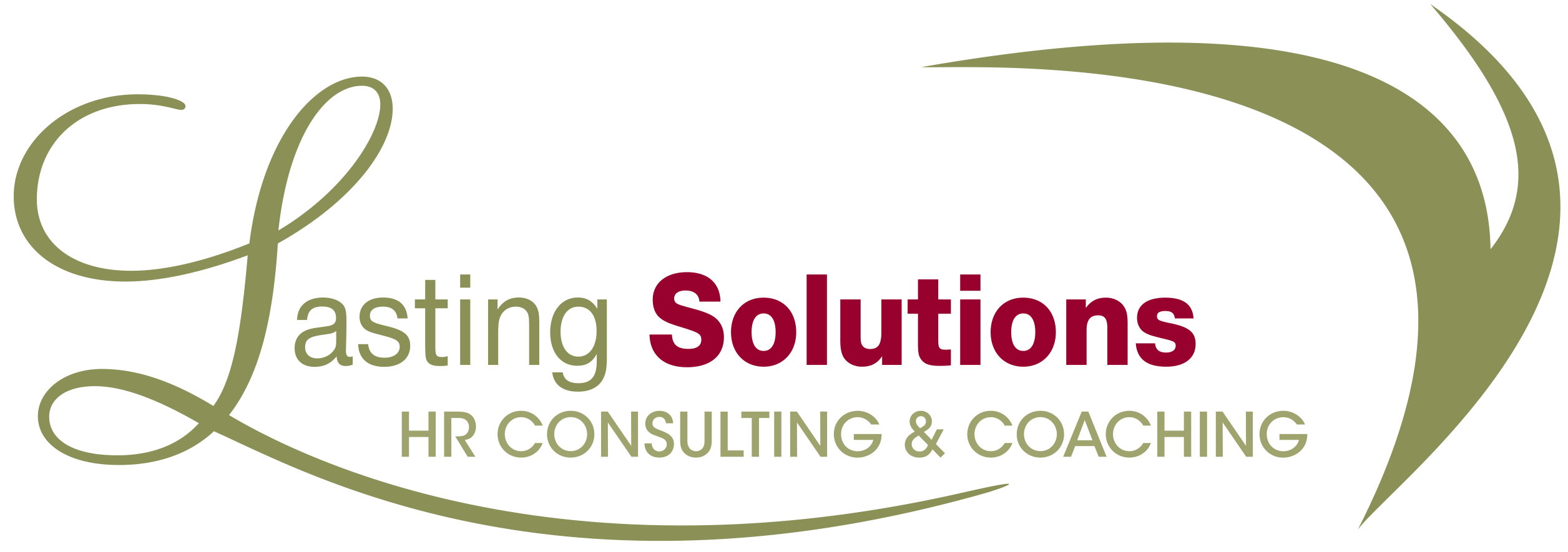7 Things Business Owners Need to do to Create a Solid HR Foundation
Having worked in corporate HR for many years with a company recognized in the Top 100 Employers in Canada, best practices came naturally and were part of our culture and heritage. Employees knew what was expected of them, where to go for information if they were looking for it, where to find support, how they would be recognized and when, what options there were in the company for advancement and what would happen when things weren’t working out. With few exceptions, it always worked.
As individuals the majority of us find comfort in knowing what’s expected of us, what the rewards are and what negative consequences may be.
Transitioning into my own business and now focusing on working with evolving businesses, I have found two aspects very different from larger corporations and they are the lack of structure and guidelines and the family friendly environment. While these are very welcoming and refreshing, they can actually cause significant turbulence in your company making it necessary to be very cautious when potential issues arise as you may overlook the concerns for the very reasons that make your business special and different. This could have the negative effect of derailing your focus and productivity!
We’ll review them in more detail, the positives and negatives to help you become more aware and then how you can overcome the challenges.
In an evolving business, you hire for the skills you need to get the work done and you need your staff to be there for you every day. You also have significant advantage with the ability to make your team feel like family. Your work environment is typically casual, with few guidelines and a friendly, social atmosphere. When your employees have an idea it goes directly to the person in charge, with little hierarchy to consider. You can make positive change with little bureaucracy. Your employees are a name, not a number and in many cases you know your team members personally, their family and sometimes you’re even good friends and were before you started working together. They work really hard to help you become successful and you in return have much trust and respect for them.
You potentially make guidelines or policies up as you go such as hours of work, pay, flexibility, expectations of how to get the work done, personal interactions, time off for personal matters etc. You may be able to juggle these situations for years quite well, catering to individual needs, managing them effectively but as your company grows and your staff increases, monitoring this could become much more complex and you could find yourself with some of these situations:
- Concerns over productivity levels of employees and not sure why they are happening or how to address them
- Catering to individual needs is now coming back to “bite you” as employees think favouritism is happening with gossip and/or negative feelings are brewing
- Personal situations enter into the workplace causing disruption and you’re not sure what you should do about it
- Excessive “innocent” time off begins to happen and you’re not sure if you should pay it or not
- Communication issues are starting to arise
- You’ve had computer viruses that are causing significant down time and cost to repair. You know it’s coming from one person but not sure what you can do about it
- Have heard that company business is being discussed outside of company time and the news coming back is either confidential or negative
- Absenteeism is becoming an issue and you don’t have anyone to back fill causing you to work many more hours than you already are
- Concerned that you might lose some of your productive team members
- Not sure you can give a pay increase and how to handle that
What are you going to be about these situations?
1. Ignore them and hope they go away.
2. Leave them until they reach a point of significant disturbance to you and your team.
3. Deal with them as soon as the problem arises and put measures in place to ensure it doesn’t happen again.
If you are like most “family friendly” business owners, you would probably choose 1 or 2. In some cases, everything would work out, however, in my experience with small business choosing 1 or 2 will at some point come back to haunt you. Ignoring situations has the potential to destroy friendships, disrupt work environments, take significant time, energy and focus away from your business and could also be financially harmful.
To overcome some of these challenges, as part of your regular business planning, recognize “potential” situations and take steps to alleviate business disruption becomes the best risk avoidance measure you can take. When dealing with people, taking the time to create a solid foundation and framework helps you focus on your business as it grows and not on administrative burdens.
By following the 7 steps outlined below, you will establish a solid HR framework for your organization.
1. Create policies & procedures that support a productive and engaged workforce
2. Develop job criteria for each role that helps you and your employees know what’s expected
3. Take the time to hire right, including developing proper interviewing criteria, employment agreements and orientation
4. Manage performance effectively and regularly so your stars know they are stars and your team members that need support get it before trouble occurs
5. Create rewards and recognition knowing what’s meaningful, affordable and sustainable
6. Manage stress related illness and absenteeism effectively; early intervention is critical
7. Know termination best practices; it’s the toughest business decision you may make but it is also important to know the signs of when it’s time and make the decision to support your company
By taking the time create a solid HR foundation, your business will be much more productive and responsive to changing business needs.


Leave a Reply